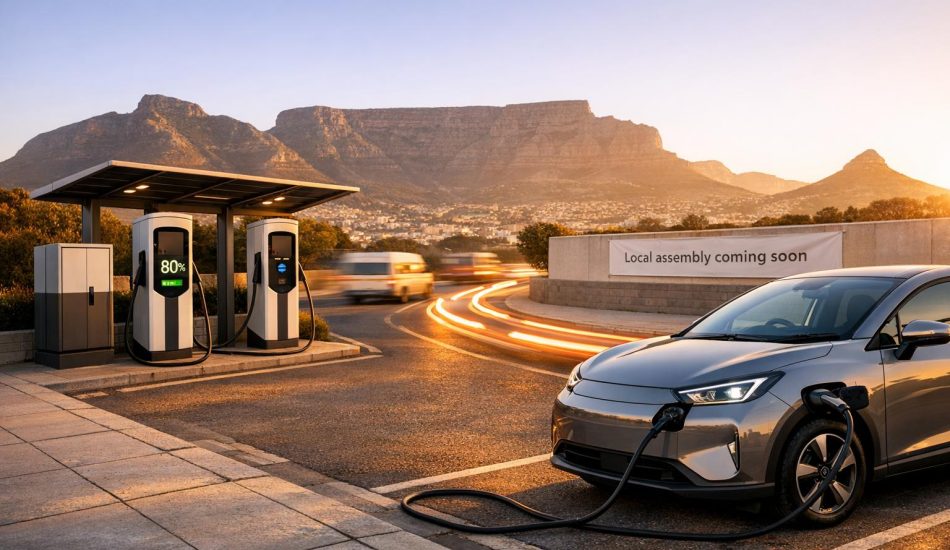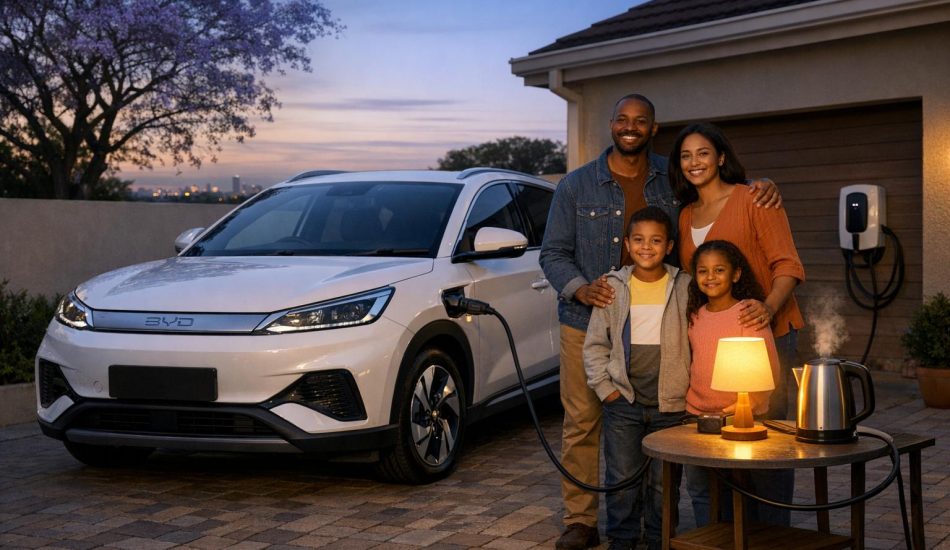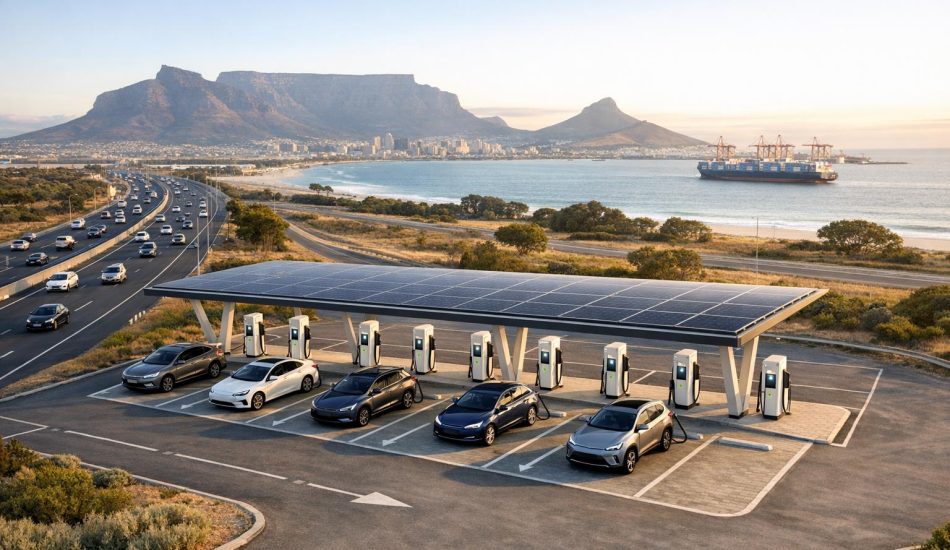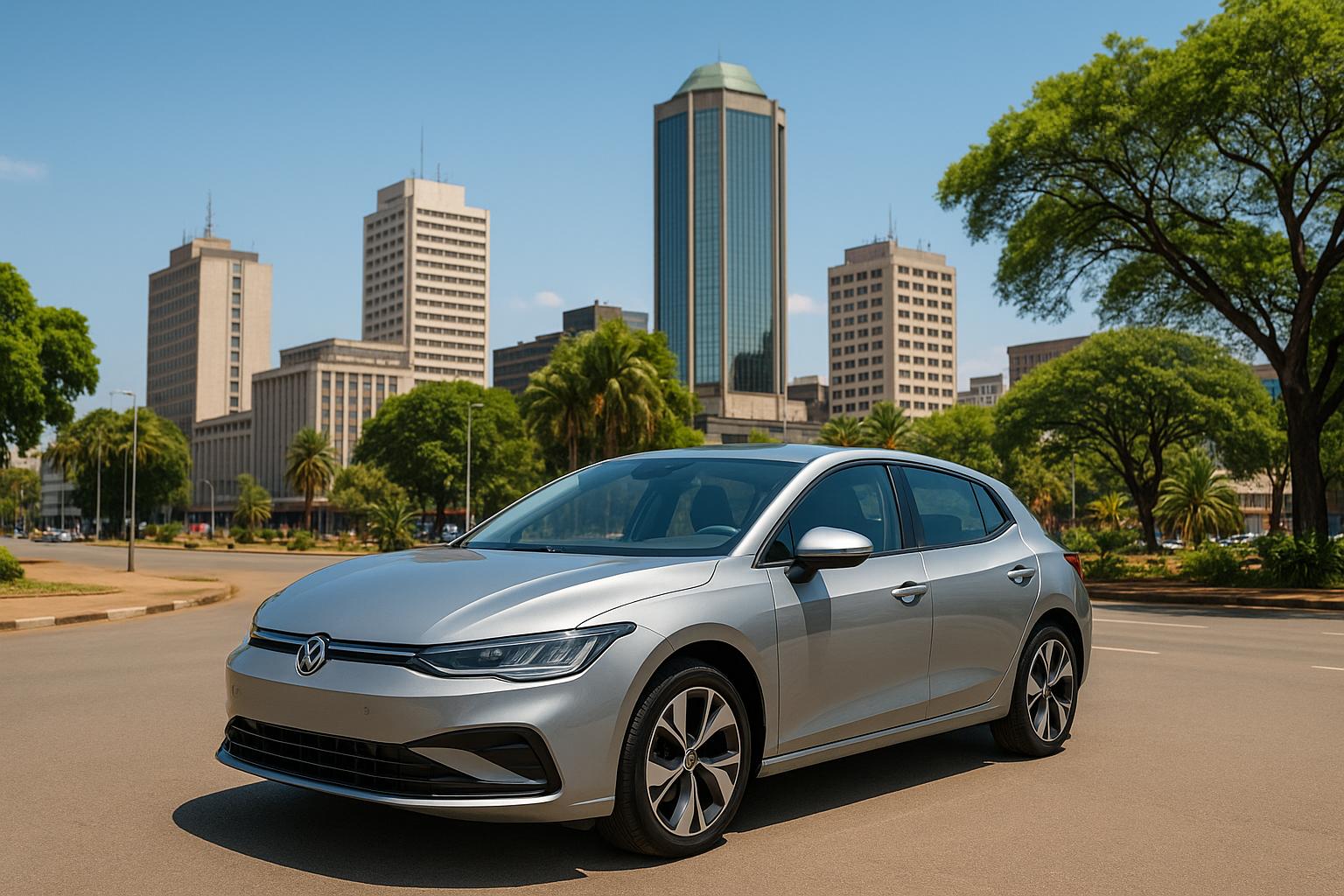
Electric vehicles (EVs) are gaining traction in Zimbabwe, thanks to lower fuel costs, reduced maintenance needs, and government incentives like reduced import duties. Popular brands such as Tesla, Nissan, and BYD are now available through platforms like EV24.africa, which simplifies the buying and delivery process. Here’s what you need to know:
- Price Range: From $7,200 for a used Nissan Leaf to $50,250 for a luxury Mercedes-Benz EQS.
- Top Models: Affordable options like the Nissan Leaf, compact city cars like the MINI Electric, and premium choices like the Mercedes-Benz EQS.
- Delivery: EV24.africa handles shipping, customs, and final delivery to your doorstep.
- Financing: Flexible short-term loans and tax incentives make EVs more accessible.
- Charging Infrastructure: Improving in major cities, though still developing nationwide.
Switching to EVs in Zimbabwe offers lower running costs and a simpler ownership experience. EV24.africa ensures a straightforward process from purchase to delivery, making it easier for you to join the electric mobility movement.
Zimbabwe’s Electric Vehicle Market in 2025
Zimbabwe’s electric vehicle (EV) market is steadily growing as more consumers transition away from gas-powered cars. Charging infrastructure in major cities like Harare and Bulawayo is improving, helping to ease concerns about range limitations. However, nationwide networks remain a work in progress.
Government policies are also playing a role, simplifying EV imports and promoting alternatives to fossil fuels. This has made EVs more accessible to a broader audience.
At the same time, consumer attitudes are shifting. Urban professionals are increasingly drawn to EVs for their lower running costs and minimal maintenance needs, offering a more predictable ownership experience.
All these changes are setting the stage for the key factors driving EV adoption in Zimbabwe.
Factors Driving EV Adoption in Zimbabwe
One of the biggest reasons for the shift to EVs is fluctuating fuel prices. With constant ups and downs in gasoline costs, many people find the stable pricing of electricity far more appealing. Additionally, EVs have a simpler mechanical design, with fewer moving parts compared to traditional internal combustion engines, which translates to fewer maintenance headaches.
Environmental awareness is another major factor. More consumers are looking to reduce their carbon footprint and improve urban air quality. EVs also come with modern features like smartphone integration and advanced driver assistance systems, which are especially attractive to tech-savvy buyers.
When it comes to the total cost of ownership, EVs are becoming a smart long-term choice. Lower fueling costs, reduced maintenance expenses, and supportive government policies make them an increasingly appealing investment.
These advantages are also laying the groundwork for local assembly and tailored innovations in Zimbabwe’s EV market.
Local Assembly and Development
There are early signs of Zimbabwe building a self-sufficient EV ecosystem. Industry leaders are pushing for local assembly plants and specialized technical training programs to develop the skills needed to support the EV market.
Regulations will need to strike a balance between encouraging innovation and ensuring safety. Although still in its infancy, local development efforts show a growing interest in creating EV solutions tailored to Zimbabwe’s specific needs and conditions.
Electric Car Brands and Models Available in Zimbabwe
Zimbabwe’s electric vehicle (EV) market now boasts a variety of options from global manufacturers. These brands cater to diverse needs, from city driving to longer highway trips, offering choices for both budget-conscious buyers and luxury enthusiasts.
Top Brands and Their Models
Mercedes-Benz has made its mark in the luxury EV segment with the EQS sedan. This model combines cutting-edge technology with the signature comfort and sophistication expected from the German automaker.
Nissan continues to be a favorite with its Leaf, a globally recognized electric vehicle. Known for reliability and versatility, the Leaf is well-suited to Zimbabwe’s mixed driving conditions.
MINI brings its iconic compact design into the electric market with the 2024 MINI Electric. This model is perfect for city dwellers seeking a stylish, zero-emission vehicle.
BMW adds to the premium EV category with its high-performance electric models, while Subaru and Toyota offer dependable options for buyers who value the reliability of Japanese engineering.
Tesla has also entered Zimbabwe’s EV market, known for its advanced features and strong performance. Meanwhile, BYD, a Chinese manufacturer, offers competitively priced models with impressive battery capabilities, making it an appealing choice for budget-conscious buyers.
This variety of brands and models ensures that Zimbabwe’s EV market can meet the needs of different drivers, whether they prioritize affordability, luxury, or cutting-edge features.
Model Comparison by Price and Features
The EV market in Zimbabwe spans a wide price range, making electric vehicles accessible to a broad audience.
| Brand | Model | Model Year | FOB Price (USD) | Market Segment |
|---|---|---|---|---|
| Nissan | Leaf | 2018 | $7,200 | Entry-level |
| Nissan | Leaf | 2019 | $8,300 | Entry-level |
| MINI | MINI Electric | 2024 | $16,650 | Compact premium |
| Mercedes-Benz | EQS | 2024 | $50,250 | Luxury sedan |
The Nissan Leaf offers the most affordable entry into EV ownership, with 2018 models priced at $7,200. While older models may have shorter ranges, they still deliver significant fuel savings compared to traditional vehicles.
For those seeking a blend of modern technology and iconic design, the 2024 MINI Electric is priced at $16,650. It’s a great choice for urban professionals looking for a stylish, efficient ride.
At the high end, the Mercedes-Benz EQS is available for $50,250. This luxury sedan provides an extended range, advanced driver assistance systems, and premium features, making it ideal for buyers who want top-tier technology and comfort.
With prices ranging from $7,200 to over $50,000, Zimbabwe’s EV market accommodates a variety of budgets and preferences. Buyers can choose based on their specific needs, whether they’re looking for an affordable commuting car or a high-end luxury vehicle. Charging speeds and driving ranges vary significantly between models, with newer vehicles generally offering faster charging and longer ranges. However, even older models provide a cost-effective alternative to traditional fuel-powered cars.
Pricing and Financing Options
After comparing different models, it’s time to dive into the overall pricing trends and financing options available for electric vehicles (EVs).
Understanding EV costs and payment plans is crucial for making an informed decision. One major factor influencing affordability is the government’s reduction of import tax duties from 40% to 25% on used EVs imported from Japan. This policy has significantly lowered prices, creating a more attractive market for EV buyers.
EV Price Ranges
The cost of EVs depends on factors like age, brand, and features. Used EVs often serve as a budget-friendly option, while newer models come with advanced technology and extended range. Thanks to the recent tax incentives, the market now offers a wider range of options, sparking greater interest in EV ownership.
Let’s take a closer look at how EV24.africa complements these pricing options with its financing solutions.
EV24.africa Financing Plans
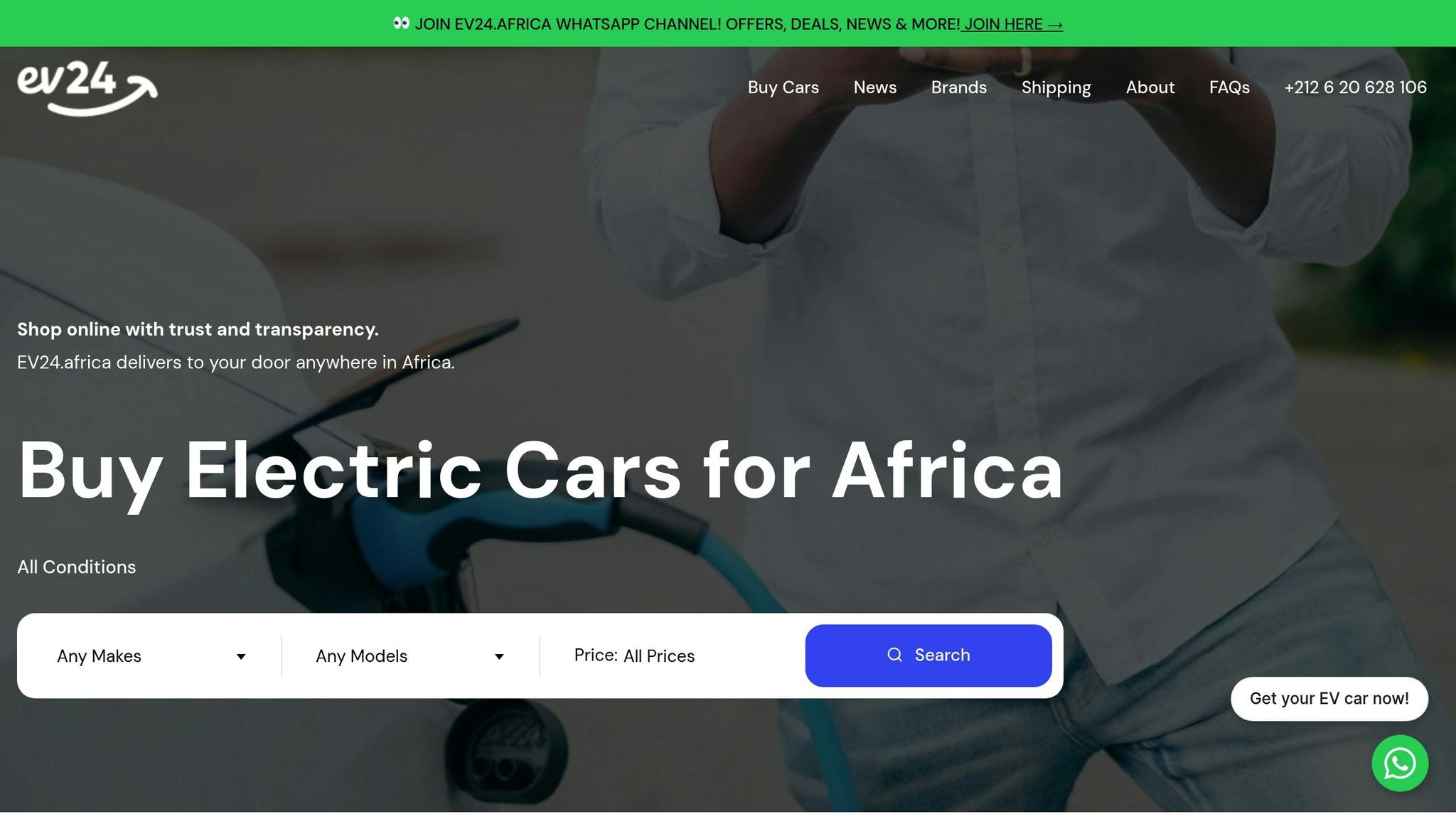
EV24.africa provides flexible payment options designed to make EV ownership more accessible. Their pricing model is straightforward, with no hidden fees, ensuring buyers have a clear understanding of the total cost.
In Zimbabwe, most car buyers typically rely on cash payments or short-term loans from local banks, as long-term vehicle financing is rarely an option. EV24.africa addresses this gap by offering transparent pricing and short-term loan solutions tailored to meet local needs, making the transition to EVs more manageable.
sbb-itb-99e19e3
Delivery and Import Process
Once your financing is secured, EV24.africa ensures your electric vehicle reaches your driveway through a smooth, fully digital process. They handle the complexities of international shipping and customs clearance, so you can focus on enjoying the perks of electric mobility instead of worrying about import logistics.
After you’ve made your purchase and finalized financing, the shipping process kicks off right away. While delivery times can vary based on factors like the vehicle’s origin, shipping method, and logistics conditions, EV24.africa partners with reliable professionals to make the entire journey as seamless as possible.
Ordering and Delivery Steps
Once you’ve chosen your vehicle and confirmed payment, EV24.africa takes care of everything from start to finish. This includes a thorough pre-shipment inspection, preparing all necessary export documents, and ensuring the vehicle complies with export regulations before it’s shipped. The car is typically transported via ocean freight, which is often the longest part of the journey. When the shipment arrives at the destination port, local partners handle customs processes, including documentation, duty payments, and inspections required by local authorities. After clearing customs, the vehicle is prepared for the final delivery to you.
Delivery Options Comparison
EV24.africa provides flexible delivery methods to cater to different preferences and budgets. The final stage is managed locally, offering customers the option to pick up their vehicle at designated urban centers or have it delivered directly to their doorstep for added convenience.
Delivery options include standard shipping, which prioritizes cost savings, or expedited service for faster delivery if time is a concern. While costs and timelines depend on factors like the vehicle’s size, weight, and the specific destination in Zimbabwe, every option includes full insurance coverage during transit and expert support through customs clearance.
Support, Maintenance, and After-Sales Services
Owning an electric vehicle (EV) should be as smooth as driving one. Beyond just financing and delivery, reliable post-sale support is key to ensuring a stress-free EV experience. In Zimbabwe, the growing EV market now includes dedicated services for maintenance and ongoing support.
Maintenance and Spare Parts
One of the perks of EV ownership is reduced maintenance compared to traditional gas or diesel vehicles. In Zimbabwe, EV24.africa has teamed up with certified local service centers to handle routine EV upkeep. These services include battery health checks, tire pressure monitoring, and software updates – all essential for maintaining performance and extending battery life, which typically lasts 8 to 15 years.
Customer Support and Warranties
EV24.africa goes the extra mile to ensure you’re supported throughout your EV journey. They offer multiple ways to get help, including a dedicated WhatsApp channel for quick answers to technical questions, warranty claims, or general guidance. For more in-depth inquiries, you can reach out via email at [email protected]. Plus, certified used EVs come with warranties, giving buyers added peace of mind.
Conclusion
Zimbabwe’s electric vehicle market is hitting a major milestone in 2025. With government incentives, such as customs duty exemptions, EVs are becoming more affordable for everyday buyers. Increased awareness about environmental issues, combined with supportive policies, has further fueled the country’s shift toward electric mobility.
EV24.africa has made what used to be a complicated process remarkably straightforward for Zimbabwean buyers. Whether you’re browsing a curated selection of top brands like Tesla, BYD, and Volkswagen, or navigating financing options, the platform takes care of every step. From sourcing vehicles globally to handling customs clearance at the Port of Durban and ensuring final delivery to your doorstep, EV24.africa offers a complete, hassle-free experience. Flexible payment options – including bank transfers, mobile money, and even cryptocurrency – open the door to EV ownership for more people. Plus, real-time tracking and thorough pre-shipment inspections provide peace of mind throughout the entire process.
"At EV24.africa, we simplify the process of importing and buying electric vehicles in Africa. Our expertise ensures a seamless, transparent, and stress-free experience, so you can focus on driving the future of mobility."
Beyond just delivering vehicles, EV24.africa provides ongoing support with reliable maintenance and customer care services. This all-in-one approach strengthens Zimbabwe’s progress toward a future centered on electric mobility.
Switching to electric vehicles in Zimbabwe isn’t just about personal convenience – it’s a step toward creating a cleaner, more sustainable future. With EV24.africa’s all-encompassing support, you’re not just purchasing a car; you’re becoming part of a transformative movement that’s reshaping transportation across the continent.
FAQs
What is driving the growth of electric vehicles in Zimbabwe, and how is the government supporting this shift?
The rise of electric vehicles (EVs) in Zimbabwe is gaining momentum, thanks to a mix of government initiatives and strategic incentives. One major factor is the reduction in import duties on fully electric vehicles. As part of the 2025 national budget, these duties have been cut from 40% to 25%, making EVs more accessible to consumers. On top of that, tax breaks and policies encouraging the use of Zimbabwe’s local lithium reserves for battery production are giving the industry an extra push.
To further support this transition, the government is channeling significant resources into infrastructure and renewable energy projects. Over $1.2 billion has been earmarked for energy and sustainability initiatives, with a focus on lowering costs, expanding charging networks, and accelerating the shift to electric mobility nationwide.
How does EV24.africa make it easier to buy and import electric cars in Zimbabwe, and what are the steps from purchase to delivery?
EV24.africa makes buying and importing electric vehicles in Zimbabwe incredibly straightforward by taking care of everything – from finding the right car to delivering it to your doorstep. Here’s how it works: buyers start by creating an account, verifying their information, and selecting their desired electric vehicle model from the platform.
After that, EV24.africa takes over. They handle the entire process, including sourcing the vehicle, arranging shipping, clearing customs, and ensuring the car meets Zimbabwe’s reduced import duty requirements (now 25%, down from 40%). The vehicle is then delivered straight to the buyer’s location, making the entire experience smooth and stress-free, without the usual headaches of car importation.
What are the main challenges with EV charging infrastructure in Zimbabwe, and how might this improve by 2025?
Zimbabwe is grappling with several obstacles when it comes to electric vehicle (EV) charging infrastructure. The country’s electricity grid is still underdeveloped, and frequent power outages – sometimes lasting up to 18 hours – add to the challenge. On top of that, the availability of public charging stations is extremely limited, making it tough for EV owners to charge their vehicles conveniently and dependably.
However, things are looking up for the near future. By 2025, plans are in motion to set up about 1,100 public charging stations nationwide. Many of these will incorporate solar-powered systems to tackle the ongoing power reliability issues. Alongside this, government incentives and private investments are expected to play a pivotal role in speeding up the development of charging networks, paving the way for more practical and accessible EV ownership across Zimbabwe.


